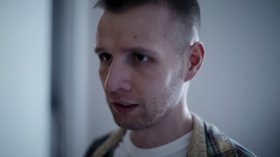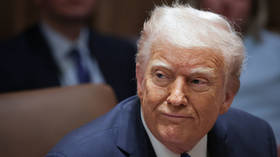Secret documents expose London’s plans to infiltrate the Balkans… while undermining Russia
A recently leaked study reveals the extent to which the British government wants to manipulate public opinion in the Balkan countries. And there are no prizes for guessing who is getting portrayed as ‘the bad guy’…
Among a tranche of leaked UK government documents related to covert actions in the Balkans is a fascinating secret study, conducted by professional services firm WYG and pollster Ipsos, which discusses methods of countering negative perceptions of Whitehall among the region’s constituent countries, and the type of propaganda that should be used to manipulate citizens’ perspectives.
The target audience analysis (TAA) offered four “programming recommendations” that would offer “potential routes” to achieving London’s “wider objectives”, among them boosting “positive perceptions” of the UK, EU accession and NATO membership in the Balkans, and “[countering] malign influence by third parties.” These were: promoting media literacy among young citizens; supporting “independent”media; funding initiatives to expose “fake news”; and promoting “historical ‘friendship’ narratives” about the UK’s links to the region.
Also on rt.com Shocking leaked files once again expose BBC as insidious UK foreign policy toolOn the last point, the document states that it was particularly important to highlight “ties that united Britain and Yugoslavia in the fight against fascism in World War Two” in public messaging, for example by twinning UK-funded public events with the 80th anniversary in 2021 of the invasion of Yugoslavia by the Axis powers. These initiatives, it was suggested, could be “promoted through embassy events, cultural and educational ties, with new research made public through exhibitions and the media.”
It seems clear the TAA’s recommendations were adopted by Whitehall. June this year saw the first ever official visit of a UK Defence Secretary to Belgrade, with Ben Wallace meeting with his opposite number and President Aleksandar Vucic, to coincide with Operation Platinum Wolf, a multinational military exercise led by London in which Serbia collaborated with NATO members.
Wallace had a present with him – a memorial to an airfield secretly operated by the UK Special Operations Executive in then-Nazi-occupied Yugoslavia, which was used to evacuate 11,000 partisan fighters and wounded civilians between May 1944 and June 1945, constructed by British Army metalsmiths. In response to its unveiling, Vucic expressed hope that relations between Belgrade and London could reach the “level of true partnership that we had as allies in both world wars.” Was the line suggested by a member of the visiting UK contingent?
Whatever the truth of the matter, following the summit, the UK and Serbia inked a bilateral document to “expand the ambition” of their “defence engagement” and “open up new opportunities for joint training.”
Also on rt.com Leaked files expose London’s cloak-and-dagger scheming to secure the permanent divorce of Kosovo from SerbiaWallace’s trip was hailed as an overwhelming diplomatic success by the mainstream media, although in a bizarre incident mere days later, he told The Daily Telegraph that a “landmark agreement” had also been signed between the two countries to counter Russia’s alleged “malign influence” and “manipulation”, which both the UK Embassy in Belgrade and the Serbian Defense Ministry vehemently denied.
Clearly, the Defence Secretary said something he shouldn’t have – the TAA makes clear that a primary objective of its “programming recommendations” in respect of regional media is secretly undermining public support for Moscow. It states that Russian “influence” in the Balkans builds on “historic cultural, religious and political ties,” with President Vladimir Putin enjoying the highest approval rating of world leaders in Montenegro (71%) and Serbia (86%) among those surveyed by Ipsos.
The reasons for this high esteem are manifold – for example, the TAA notes Moscow is “perceived as a protector of Serbian interests on Kosovo” and in turn Kosovan Serbs see Russia as “a brotherly nation, which gives moral and political support to them.”
The country was also widely believed to be a “shield against NATO” among those unenamoured with the military alliance. Such sentiment is widespread throughout the region – 98% of Bosnian Serbs and 80% of Serbs oppose membership, and a mere 30% of Montenegrins harbor favorable views of the bloc, despite their country joining in June 2017.
However, the TAA argues that opposition to “closer alignment with the West” – along with negative perceptions of the UK more generally – aren’t legitimate opinions with a reasonable or rational basis, but can only result from “Moscow’s disruptive role” in the region, said to include attempts to “[undermine] security, sovereignty and stability,” and as such is a “threat” that must be countered.
Contradictorily though, the analysis concedes that research and analysis indicated “pro-Russian” news or commentary is “often home-grown” and frequently results from “what local leaders are doing to boost their popularity,” with many media outlets said to be “openly pro-Russia.” Evidently, positive coverage and perceptions of Moscow in the Balkans aren’t the product of external meddling.
Still, to counteract this objectionable state of affairs, Whitehall launched a grandiose project, ‘Supporting Greater Media Independence in the Western Balkans’, set to cost £9.5 million between 2019 and 2022. Bidding contractors were provided a confidential file outlining a number of “proposed activities” to be launched.
Suggestions included creating a “pipeline” of female “defence and diplomacy journalists”, launching a newswire publishing “quality” text, picture and video content available in the region’s four major languages, managing a “citizen content factory” to train young people to become content producers to “identify and counter hostile narratives,” and also a drive to secretly engage social media influencers to peddle pro-Western propaganda.
“Popular vloggers… will release videos, in which they share highly inflammatory disinformation, some of which will include conspiracy theories about NATO, before revealing that it is fake and calling out their follower community for possibly believing them,” the document states. “The influencer will conclude that they are tired of seeing fake and inflammatory content on YouTube and other platforms and call for audiences to be wise to disinformation.”
It’s troubling to consider that the Serbian Defense Ministry’s denial that it had signed any agreement with the UK targeting Moscow’s alleged “malign influence” could well have been sincere, and Belgrade was simply hoodwinked into greenlighting covert efforts by London to improve media standards and battle the scourge of false information, without realising their true nature and purpose.
Also on rt.com Leaked papers allege massive UK govt effort to co-opt Russian-language anti-Kremlin media & influencers to ‘weaken Russian state’Reinforcing this interpretation, leaked files related to a cloak-and-dagger Whitehall operation to ensure Kosovo’s total and permanent severance from Serbia make abundantly clear the initiative’s true nature, and London’s role in it, was meant to be kept completely secret from the public – and local politicians.
Clearly, Virgil’s famous proverb needs to be updated – in the 21st century, it’s Brits bearing gifts one must beware.
Think your friends would be interested? Share this story!
The statements, views and opinions expressed in this column are solely those of the author and do not necessarily represent those of RT.















